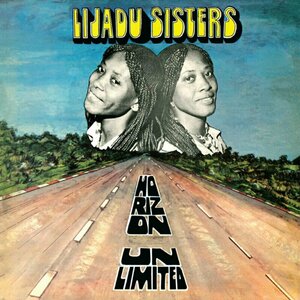Horizon Unlimited by Lijadu Sisters
AlbumThis item doesn’t have any media yet
1979 | Pop
The disc opens with an outstanding chunk of Afrobeat, Orere-Elejigbo. Its lyric, sung mostly in Yoruba, refers to the trouble in the streets then endemic in urban Nigerian life trouble frequently caused by the supposed forces of law and order. The words cite the legend of a destructive princess, and tell the government it should be nurturing the people, not destroying them, their environment and their culture. Erora, which follows, expands on this idea. Literally, the word means take it easy, and here Taiwo and Kehinde use it as an exhortation to the governing and industrial elite. Take it easy, they sing: if you use money or power in a negative way, you will destroy the world. By 1979, the oil-driven ecological rape of the Nigerian delta was already woefully advanced. The general ambiance is similar to the apala/fuji/waka mix of Bayi L ense on Mother Africa.
Gbowo Mi, a song to Oshun, the river goddess, is pure balm for the soul, with a delightful acoustic piano vamp. It is followed by Gbalo-Alogbalo. Asked what it means, Kehinde laughs and says, We don t know! They are the phonetic spelling of words our mother heard when she young, on a record a Camerounian friend played to her. It was mum who taught us the original song. (In the early 1960s, the emerging Congolese rumba star Franco wrote several songs like this, verses, choruses, bridges and all, impressing everyone with his knowledge of Spanish as he tried for an authentic Cuban sound). Horizon Unlimited concludes with two funk-infused love ballads, Come On Home and Not Any Longer.
Related Items:
| Label | Knitting Factory Records/Ada |
Images And Data Courtesy Of: Knitting Factory Records/Ada.
This content (including text, images, videos and other media) is published and used in accordance
with Fair Use.
